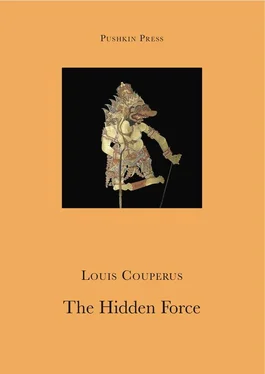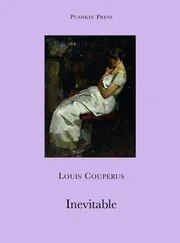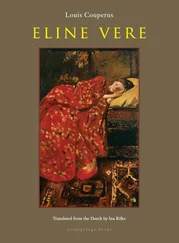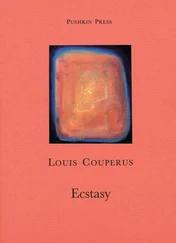Louis Couperus - The Hidden Force
Здесь есть возможность читать онлайн «Louis Couperus - The Hidden Force» весь текст электронной книги совершенно бесплатно (целиком полную версию без сокращений). В некоторых случаях можно слушать аудио, скачать через торрент в формате fb2 и присутствует краткое содержание. Год выпуска: 2012, ISBN: 2012, Издательство: Pushkin Press, Жанр: Классическая проза, на английском языке. Описание произведения, (предисловие) а так же отзывы посетителей доступны на портале библиотеки ЛибКат.
- Название:The Hidden Force
- Автор:
- Издательство:Pushkin Press
- Жанр:
- Год:2012
- ISBN:9781908968227
- Рейтинг книги:4 / 5. Голосов: 1
-
Избранное:Добавить в избранное
- Отзывы:
-
Ваша оценка:
- 80
- 1
- 2
- 3
- 4
- 5
The Hidden Force: краткое содержание, описание и аннотация
Предлагаем к чтению аннотацию, описание, краткое содержание или предисловие (зависит от того, что написал сам автор книги «The Hidden Force»). Если вы не нашли необходимую информацию о книге — напишите в комментариях, мы постараемся отыскать её.
The Hidden Force — читать онлайн бесплатно полную книгу (весь текст) целиком
Ниже представлен текст книги, разбитый по страницам. Система сохранения места последней прочитанной страницы, позволяет с удобством читать онлайн бесплатно книгу «The Hidden Force», без необходимости каждый раз заново искать на чём Вы остановились. Поставьте закладку, и сможете в любой момент перейти на страницу, на которой закончили чтение.
Интервал:
Закладка:
They were sitting in the garden, in casual dress, drinking tea at five-thirty. How strange that Léonie immediately somehow filled the big house with a more comfortable conviviality, since it was what she liked. Whereas Van Oudijck usually drank a quick cup of tea, which Kario brought to his bedroom, today the afternoon tea had already grown into a pleasant hour. Cane chairs and long deckchairs had been put outside; the tea tray was placed on a cane table; fried bananas had been served; and Léonie, in a red silk Japanese kimono, with her blond hair loose, lay in a cane chair playing with Doddy’s cockatoo and feeding the bird with cake. The house was instantly transformed, thought Van Oudijck, his wife sociable, sweet, beautiful, now and then telling them about her acquaintances in Batavia, the races at Buitenzorg, a ball at the Governor General’s palace, the Italian opera; the boys cheerful, healthy, full of fun, however dirty they were from their games — and she called them over and romped with them a bit and asked about high school, where they were in the second form; and even Doddy and Theo seemed different — Doddy, now picking roses charmingly from the flowerpots and breaking into song, and Theo talkative with Mama, and even with Van Oudijck himself. Lines of pleasure played around Van Oudijck’s moustache. He still had a young-looking face and scarcely seemed forty-eight. He had an acute, lively gaze, both responsive and penetrating. He was a little thick-set and had a predisposition to become more so, but he had retained a military dash, and on official tours he was tireless; he was an excellent horseman. Tall and well-built, content with his house and family, he had a pleasant air of solid masculinity, and there were jovial lines around his moustache. Relaxing, stretched out in his cane chair, drinking his cup of tea, he expressed the thoughts that usually rose up in him at such moments of contentment. Yes, it was a pretty good life in the Indies, in the Dutch Colonial Service. At least, it had always been good for him, but then he had been fairly lucky. But nowadays the promotion situation was desperate: he knew lots of assistant commissioners who were his contemporaries and who in all those years had had no chance to become commissioners. And that was certainly a desperate state of affairs, to be in a subordinate position in relation to a superior for so long, to have await orders from a commissioner at that age. He would never have been able to tolerate it, at the age of forty-eight! But being a commissioner, giving the orders oneself, administering for oneself a district as large and important as Labuwangi, with such extensive coffee plantations, such numerous sugar factories, with so many leased concessions — that was a joy, that was living: life on the grandest, most expansive scale, with which no position or life in Holland could compare. His great responsibility was a delight for his naturally dominant nature. His work was varied: office work and tours; the priorities of his work were varied: one was not bored to death sitting in an office; after office work there was the freedom of the natural world, and there was always variety, always something different. He hoped in eighteen months’ time to become a district commissioner first class, if there was a vacancy in a first-class area: Batavia, Semarang, Surabaya, or one of the Principalities. And yet it would be a wrench to leave Labuwangi. He was attached to his district, for which for five years he had done so much that had come to fruition, to the extent that any fruition was possible in this period of general malaise: with the colonies poor, the population impoverished, coffee-growing worse than ever, sugar possibly facing a severe crisis in two years’ time… the Indies were languishing and even in industrial East Java there was the beginnings of apathy and weakness, but still he had been able to do a lot for Labuwangi. During his watch the population had increased in prosperity; the irrigation of the paddy fields was excellent, after he had been able to use tact to win over the engineer, who had at first been constantly at odds with the colonial authorities. Numerous steam tramlines had been built. The secretary, his assistant commissioners, and his controllers were devoted to him, though working under him was hard. He took a pleasant tone with them, though, despite the work being hard. He could be friendly and jovial, even though he was the commissioner. He was glad that all of them — his controllers, his assistant commissioners — represented that healthy, cheerful kind of colonial official, happy with their life and work, even though they too nowadays combed the Government Almanac and the Colonial List for news of their promotion. So it was Van Oudijck’s hobby horse to compare his officials with those of the court, who did not demonstrate that cheerful attitude: consequently there was always a slight envy and animosity between the two groups… Yes, it was a pleasant life, pleasant work, everything was fine, everything was fine. There was nothing like the Colonial Service. His only regret was that his relations with the government-appointed native prince were not easier and more pleasant. But it was not his fault. He always scrupulously gave the Prince his due, recognized his rights, supported him with the Javanese population and even with European officials. Oh, he was so deeply sorry at the death of the old prince, the father of the Prince, a noble, well-educated Javanese. He had always sympathized with the former prince, and had immediately won him over with his tact. Had he not, five years ago now, when he arrived in Labuwangi for the hand-over of power, invited the old prince — a model of a true Javanese aristocrat — to sit beside him in his own carriage, and had not, as was customary, made him follow in a second carriage behind the commissioner’s; and had he not through this act of courtesy towards the old prince immediately won over all the Javanese chiefs and officials and flattered them in their respect and love for their prince, a descendant of one of the oldest Javanese dynasties, the Adiningrats, once, in the age of the Dutch East India Company, sultans of Madura?… But as for Sunario, his son, now the young prince, he failed to understand or fathom him — he admitted this only tacitly to himself — he saw him only as a mystery, that wayang shadow puppet, as he called him, always stiff, aloof from him, the commissioner, as if he — as a prince — looked down on him, the Dutch bourgeois; and on top of that a fanatic, with no awareness of the interests of the Javanese population, absorbed solely in all kinds of superstitious practices and fanatical reflections. He did not say it in so many words, but there was something in the Prince he couldn’t grasp. He could not place the delicate figure, with his staring jet-black eyes, as a human being in practical life, as he had always been able to do with the old prince, who had always been, in accordance with his age, his paternal friend — according to colonial etiquette his “younger brother”, always co-administrator of his district. But Sunario he found a phoney, not an official, not a prince, nothing but a fanatical Javanese, who shrouded himself in so-called mystery: all nonsense, thought Van Oudijck. He laughed at the holiness that the population attributed to him. He considered him impractical, degenerate, a demented Javanese dandy!
But his disharmony with the Prince — only one of character, which had never developed into actual conflict, since he could after all wind the chap round his little finger! — was the only major difficulty that had occasionally troubled him in all these years. He would not have wanted to swap his life as a commissioner for any other. Oh, he was already fretting about what he would do later when he had retired. He would prefer to stay in the service for as long as possible; member of the Council of the Indies, vice-president… His secret ambition, far in the distance, was the position of governor general. However, at present there was a strange furore in Holland for appointing outsiders to the top posts — Dutchmen, wet behind the ears, who knew absolutely nothing about the Indies — instead of sticking to the principle of appointing Indies veterans, who had climbed from trainee-controller and knew the whole official hierarchy like the back of their hand… Well, what would he do after retirement? Live in Nice? Without money? Because saving was hopeless; life was comfortable, but expensive, and instead of saving he was running up debts. Well, that didn’t matter for now, that would be paid off, but later, later, later… The future, retirement, was a far from pleasant prospect. Vegetating in The Hague, in a poky house, drinking in gentlemen’s clubs with the old fogies… gave him the shivers. He wouldn’t think about it; in fact, he didn’t want to think about the future at all; he might be dead before then. For now it was splendid, his work, his house, the Indies. Nothing at all could compare with it.
Читать дальшеИнтервал:
Закладка:
Похожие книги на «The Hidden Force»
Представляем Вашему вниманию похожие книги на «The Hidden Force» списком для выбора. Мы отобрали схожую по названию и смыслу литературу в надежде предоставить читателям больше вариантов отыскать новые, интересные, ещё непрочитанные произведения.
Обсуждение, отзывы о книге «The Hidden Force» и просто собственные мнения читателей. Оставьте ваши комментарии, напишите, что Вы думаете о произведении, его смысле или главных героях. Укажите что конкретно понравилось, а что нет, и почему Вы так считаете.












